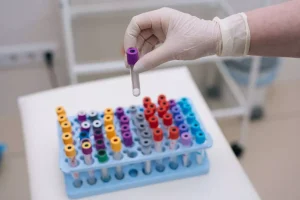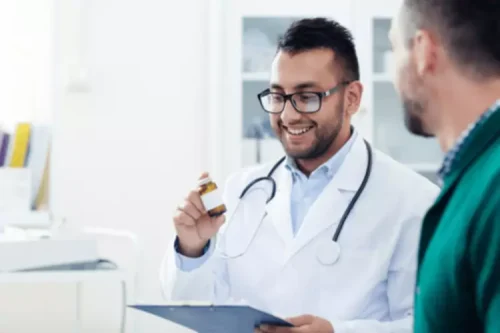
Alcohol poisoning is a two-phase condition also known as ethanol toxicity. The condition occurs when you drink large amounts of alcohol that affect the organs in your body. Women who drink their normal amount of alcohol prior to menstruation will experience higher BACs than they otherwise would. Drinking stronger alcoholic beverages can accelerate the absorption rate. This causes alcohol to stay in your system for longer periods of time. The liver gets most of the attention when it comes to alcohol metabolism.
[Podcast] Episode 7: The Woman Changing How the World Sees Non-Alcoholic Drinks with Victoria Watters
The liver processes approximately 90-98% of the alcohol you consume. The time it takes to eliminate alcohol from your system fully depends on factors such as the amount consumed, individual metabolism, and overall health. After a night of drinking, you may experience fatigue, queasiness, and low blood sugar. This is especially true if you did not consume adequate food before, during, and after drinking alcohol. Eating complex carbohydrates like toast, crackers, and bagels can help alleviate nausea and bring your blood sugar levels back up. Addressing nausea is important to prevent vomiting that can further dehydrate you.
Rate of Drinking
For example, experts now recognize a pre-addiction stage of alcohol use disorder (AUD). If a person is identified with pre-addiction before alcohol issues become entrenched and then receives treatment, major emotional and physical pain could be averted. This post covers the range of problematic alcohol use from pre-addiction to AUD. After drinking a lot of alcohol, you might feel too nauseous to eat. However, food can speed up alcohol metabolism, especially probiotic foods like sauerkraut, kombucha, and kefir. A rare but very serious syndrome called delirium tremens can occur during alcohol withdrawal.

How Long Does Alcohol Stay in Your System?
A treatment center will attempt to verify your health insurance benefits and/or necessary authorizations on your behalf. Please note, this is only a quote of benefits and/or authorization. We cannot guarantee payment or verification eligibility as conveyed by your health insurance provider how fast can you get alcohol out of your system will be accurate and complete. Payment of benefits are subject to all terms, conditions, limitations, and exclusions of the member’s contract at time of service. AddictionResource aims to present the most accurate, trustworthy, and up-to-date medical content to our readers.
- Although you can’t speed up the metabolization process, you can take steps to help you feel more alert and aware.
- In addition, mental health disorders are often a part of the health history of those affected.
- Once your BAC hits .08 percent, you’ll have the tell-tale signs of being drunk.
- Keep a list of emergency phone numbers on hand that includes contact info for your doctor, the police, a nearby hospital, and someone you trust.
How Your Body Metabolizes Alcohol
After a night of drinking, you may be feeling worse for the wear. If you’re dealing with a hangover, you’ve probably even tried some of the various home remedies to alleviate the usual headache, nausea, and lethargy. Unfortunately, most of these remedies are ineffective, and some can even be more harmful, such as “hair of the dog” or having another drink in the morning.
Can You Mix Trazodone and Alcohol? Plus, 3 More FAQs About This Risky Combination
There’s a bit of truth to the phrase, “sleep it off.” Sleep allows your body to rest and recover. Sleeping won’t physically remove alcohol from your system, however, it will give your body time to rest so it can effectively remove alcohol from your system. The occasional glass of wine or cocktail isn’t anything to worry about unless you have a gut infection or are following an elimination diet.
Can You Flush Alcohol Out of Your System Quicker?
Men typically need to consume twice as much alcohol to reach the same level of intoxication as women. When a person consumes alcoholic beverages, the alcohol builds up in their bloodstream. The liver is the primary organ for eliminating alcohol and needs time to filter the blood and break the alcohol down. Eating before, during, and after drinking can help slow the absorption of alcohol into the bloodstream. This is because the body closes a valve at the bottom of the stomach when digestion occurs.

Drinking plenty of water will reduce dehydration and get water back in your system. An electrolyte drink will help your body hold the fluids and rehydrate faster. Drinking water cannot sober you up, but it can prevent you from drinking too much too fast. Since you metabolize alcohol over a set amount of time, drinking water between drinks allows your liver time to process the alcohol.
- And consider joining a support group such as Alcoholics Anonymous.
- When you have food in your stomach, your ADH levels are higher, and your body can process alcohol more efficiently.
- The only way to deal with alcohol poisoning is by getting emergency medical attention.
- We’ve also partnered with Moderation Management, a non-profit dedicated to reducing the harm caused by the misuse of alcohol.
What are the signs that I should seek professional help for my drinking?
If you are following an elimination diet or have Candida overgrowth or small intestinal bacterial overgrowth (SIBO), you want to avoid having a drink altogether. What equates to 1 drink depends on the size and type of alcoholic drink you have. You may be underestimating how much you drink because you (or your generous friend) aren’t using standard measurements. Other factors affect the intoxication level that will cause BAC to rise more quickly and fall more slowly. Someone who is drinking on an empty stomach could have a BAC three times higher than someone who has eaten before drinking. BetterHelp can connect you to an addiction and mental health counselor.
